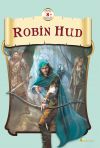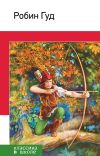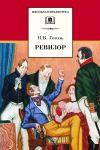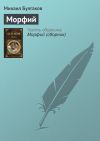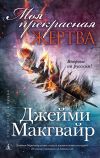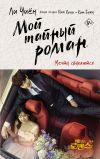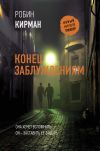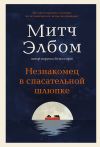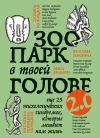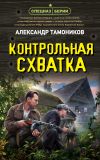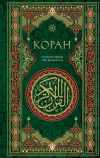Текст книги "Легкое чтение на английском языке. Робин Гуд"
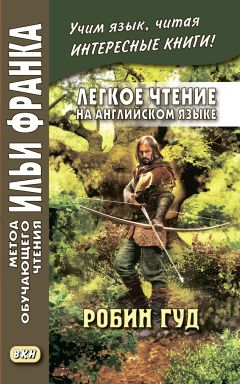
Автор книги: Сборник
Жанр: Иностранные языки, Наука и Образование
Возрастные ограничения: +12
сообщить о неприемлемом содержимом
Текущая страница: 2 (всего у книги 8 страниц) [доступный отрывок для чтения: 2 страниц]
Chapter 2
Robin Hood and the knight
(Робин Гуд и рыцарь)
A knight came riding through the trees in the greenwood (меж деревьев в зеленом лесу ехал верхом один рыцарь; greenwood – лиственный лес, лес в зеленом наряде). He rode like a poor man, on an old horse and in old clothes (он ехал, как бедный человек, на старой кляче и в старой одежде; to ride – ехать верхом; horse – конь, лошадь).
Suddenly he heard (внезапно он услышал): “Welcome, good knight (добро пожаловать, добрый рыцарь)! Welcome to the green wood (добро пожаловать в зеленый лес)!”
knight [naɪt], through [θru:], poor [pʋǝ], horse [hɔ:s], heard [hɜ:d], welcome ['welkǝm]
A knight came riding through the trees in the greenwood. He rode like a poor man, on an old horse and in old clothes.
Suddenly he heard: “Welcome, good knight! Welcome to the green wood!”
The knight looked up (рыцарь поднял глаза; to look up – смотреть вверх, поднимать глаза). Two yeomen in green clothes stood at his horse's head (у головы его лошади стояли два йомена в зеленом). They had arrows ready to shoot from their long bows (у них были стрелы, которыми они готовы были выстрелить из своих длинных луков).
“Who are you (кто вы такие)?” the knight asked (спросил рыцарь).
The bigger man answered (мужчина повыше ответил): “They call me Little John (меня зовут Малыш Джон/Маленький Джон). And my friend here is Much the miller's son (а это мой друг Мач, сын мельника; mill – мельница; to mill – молоть /зерно/, изготовлять муку; miller – мельник). We are Robin Hood's men (мы люди Робина Гуда).”
head [hed], ready ['redɪ], ask [ɑ:sk], answer ['ɑ:nsǝ], friend [frend], here [hɪǝ], son [sʌn]
The knight looked up. Two yeomen in green clothes stood at his horse's head. They had arrows ready to shoot from their long bows.
“Who are you?” the knight asked.
The bigger man answered: “They call me Little John. And my friend here is Much the miller's son. We are Robin Hood's men.”
“I know about Robin Hood (я знаю = слышал о Робине Гуде),” said the knight. “He is a good man (он хороший человек). He takes money from those who have a lot (он забирает деньги у тех, у кого их в избытке; lot – лот, жребий; уйма, масса, много), but he gives it to the poor (но он отдает их бедным). He never takes anything from women or from good yeomen (он никогда не берет ничего у женщин или у добрых крестьян) who work in the fields or in the forest (которые работают на полях или в лесу).”
“That's right (это верно),” Little John said. “And now will you come with us (а теперь, пойдешь ли ты с нами = иди с нами)? Robin is waiting for his dinner (Робин ждет обеда). He told us to find somebody to have dinner with him (он велел нам найти кого-нибудь, с кем бы он мог пообедать).”
about [ǝ'baʋt], money ['mʌnɪ], never ['nevǝ], women ['wɪmɪn], field [fi:ld], forest ['fɒrɪst], somebody ['sʌmbǝdɪ]
“I know about Robin Hood,” said the knight. “He is a good man. He takes money from those who have a lot, but he gives it to the poor. He never takes anything from women or from good yeomen who work in the fields or in the forest.”
“That's right,” Little John said. “And now will you come with us? Robin is waiting for his dinner. He told us to find somebody to have dinner with him.”
“I wasn't going to have any dinner today (я не собирался = не надеялся пообедать сегодня),” the knight said. “I'll come with you gladly (я с радостью пойду с вами).”
Little John and Much brought the knight to Robin Hood (Малыш Джон и Мач отвели рыцаря к Робину Гуду; to bring – приносить, привозить; приводить /с собой/).
“Welcome, Sir Knight (добро пожаловать, сэр рыцарь),” said Robin. “I am Sir Richard of the Lee (я – сэр Ричард из Ли),” said the knight.
“Then, Sir Richard, let us have dinner (тогда, сэр Ричард, давай пообедаем).”
today [tǝ'deɪ], gladly ['ɡlædlɪ], brought [brɔ:t]
“I wasn't going to have any dinner today,” the knight said. “I'll come with you gladly.”
Little John and Much brought the knight to Robin Hood.
“Welcome, Sir Knight,” said Robin. “I am Sir Richard of the Lee,” said the knight.
“Then, Sir Richard, let us have dinner.”
It was a very good dinner (обед был очень хорошим). There was fish from the river (была рыба из реки), deer from the forest (олень из леса) – as much as the knight could eat (столько, сколько: «так много как» рыцарь мог съесть).
“I haven't had a dinner like that for a long time, Robin (я так не обедал очень давно, Робин),” he said. “Thank you (благодарю тебя)!”
was [wɒz], could [kʋd], haven't ['hævnt]
It was a very good dinner. There was fish from the river, deer from the forest – as much as the knight could eat.
“I haven't had a dinner like that for a long time, Robin,” he said. “Thank you!”
“Do you want to pay something for it (не хочешь ли ты заплатить чем-нибудь за него)?” Robin Hood asked. “If you do (если ты заплатишь), I can give food like that to other people, poor people (я смогу дать пищу, подобную этой, другим людям, бедным людям).”
“I'd like to pay (я бы хотел заплатить),” said the knight, “but I don't have much money, only one piece of gold (но у меня нет много денег, только одна золотая монета; piece – кусок, часть; монета; gold – золото).”
want [wɒnt], something ['sʌmθɪŋ], other ['ʌðǝ], people ['pi:pl], piece [pi:s]
“Do you want to pay something for it?” Robin Hood asked. “If you do, I can give food like that to other people, poor people.”
“I'd like to pay,” said the knight, “but I don't have much money, only one piece of gold.”
Robin looked at him (Робин взглянул на него). “If that is all you have, I won't take it (если это все, что у тебя есть, то я не возьму ее). And if you need more, you can have it (и если тебе нужно больше, то ты сможешь взять /больше/). But Little John must see (но Малыш Джон должен взглянуть /и убедиться, что это так/).”
Little John looked in the knight's bags (Малыш Джон заглянул в сумки рыцаря; bag – мешок, сумка; вещи). “It's right (все верно),” he said. “The knight doesn't have more than one piece of gold (у рыцаря ничего нет, кроме одной золотой монеты: «рыцарь не владеет ничем больше, чем одной золотой монетой»).”
won't [wǝʋnt], more [mɔ:], right [raɪt]
Robin looked at him. “If that is all you have, I won't take it. And if you need more, you can have it. But Little John must see.”
Little John looked in the knight's bags. “It's right,” he said. “The knight doesn't have more than one piece of gold.”
“Do you want to tell us why (ты хочешь рассказать нам, из-за чего = расскажи нам, отчего так /получилось/; why – почему)?” Robin asked.
“Yes, Robin,” said Sir Richard. “I had a son (у меня был сын). He killed a knight (он убил одного рыцаря). It was in a fair fight at the tournament field (и случилось это в честном поединке на турнирном поле = на ристалище; fair – порядочный, честный, справедливый; tournament – средневековый рыцарский турнир; field – поле, луг; поле сражения), but the proud sheriff of Nottingham put my son in prison (но гордый шериф Ноттингемский бросил моего сына в тюрьму; proud – гордый; высокомерный, надменный). To get him out of prison (чтобы вызволить его /моего сына/ из тюрьмы), he took all my money and more (он забрал все мои деньги и даже больше). I had to borrow (мне пришлось брать взаймы; to borrow – занимать, брать на время).”
fair [feǝ], tournament ['tʋǝnǝmǝnt], proud [praʋd], sheriff ['ʃerɪf], Nottingham ['nɒtɪŋǝm], prison ['prɪzn], borrow ['bɒrǝʋ]
“Do you want to tell us why?” Robin asked.
“Yes, Robin,” said Sir Richard. “I had a son. He killed a knight. It was in a fair fight t at the tournament field, but the proud sheriff of Nottingham put my son in prison. To get him out of prison, he took all my money and more. I had to borrow.”
“You borrowed from your friends (ты занял у своих друзей)?” Robin said.
“No. When I was rich, I had friends (когда я был богат, у меня были друзья). When I wanted money, they all left me (когда мне понадобились деньги, они все покинули меня; to leave – покидать /кого-либо; какое-либо место/). I had to borrow from the rich abbot of the Abbey of St. Mary (мне пришлось занять у богатого аббата из Аббатства Святой Марии; abbot – аббат, настоятель монастыря; abbey – аббатство, монастырь; St. = saint – святой). I must pay him back four hundred pieces of gold (я должен выплатить ему четыреста золотых монет; to pay back – вознаграждать, отплачивать: «платить назад = обратно»). If I can't pay him back the money tomorrow (если я не смогу выплатить ему деньги завтра), he will take my castle and all my lands (он заберет мой замок и все мои земли).”
abbot ['æbǝt], abbey ['æbɪ], four [fɔ:], hundred ['hʌndrǝd], tomorrow [tǝ'mɒrǝʋ], castle ['kɑ:sl]
“You borrowed from your friends?” Robin said.
“No. When I was rich, I had friends. When I wanted money, they all left me. I had to borrow from the rich abbot of the Abbey of St. Mary. I must pay him back four hundred pieces of gold. If I can't pay him back the money tomorrow, he will take my castle and all my lands.”
Robin spoke to Little John (Робин заговорил с Малышом Джоном = обратился к…; to speak – говорить, разговаривать). “Go to our hiding-place, Little John (отправляйся в наше тайное укрытие, Малыш Джон; to hide – прятаться, скрываться; hiding-place – потаенное, тайное место; укрытие, тайник), and get four hundred pieces of gold (и возьми четыреста золотых монет). Sir Richard can borrow it from us (сэр Ричард может занять их у нас).”
Little John counted out more than four hundred pieces of gold (Малыш Джон отсчитал более четырехсот золотых монет; to count – пересчитывать, вычислять, подсчитывать).
“Can't you count (ты что, не умеешь считать)?” asked Much.
“This is the way to count money when a poor knight has to have it (именно так и надо считать деньги, когда в них нуждается бедный рыцарь: «бедный рыцарь вынужден взять их»).”
hiding-place ['haɪdɪŋpleɪs], count out ['kaʋnt'aʋt], can't [kɑ:nt]
Robin spoke to Little John. “Go to our hiding-place, Little John, and get four hundred pieces of gold. Sir Richard can borrow it from us.”
Little John counted out more than four hundred pieces of gold.
“Can't you count?” asked Much.
“This is the way to count money when a poor knight has to have it.”
“Robin,” said Little John, “this man is a knight (этот человек – рыцарь), but his clothes are very old (а его одежда очень старая). You must give him the right clothes for a knight (ты должен дать ему подходящую для рыцаря одежду; right – правый, правильный; подходящий, надлежащий). We have good green cloth (у нас есть хорошая зеленая материя; cloth – ткань /любая ткань из шерсти животных или из растений; без уточнения, обыкн. имеется в виду шерстяная/)…”
“Yes,” said Robin. “Give him three yards (дай ему три ярда; yard – ярд /мера длины, равная 3 футам или 91,44 см/).”
Little John gave the knight four yards of Lincoln green cloth (Малыш Джон дал рыцарю четыре метра ярко-зеленого сукна).
clothes [klǝʋðz], old [ǝʋld], cloth [klɒθ]
“Robin,” said Little John, “this man is a knight, but his clothes are very old. You must give him the right clothes for a knight. We have good green cloth…”
“Yes,” said Robin. “Give him three yards.”
Little John gave the knight four yards of Lincoln green cloth.
Then he said, “And the knight must have a good horse (и у рыцаря должен быть хороший конь), not the old one he came on (а не такой старый, как тот, на котором он приехал).”
“Yes,” said Robin Hood. “Give him a good horse (дай ему хорошего коня).”
Little John gave him Robin's best horse (Малыш Джон дал ему самого лучшего коня Робина).
then [ðen], must [mʌst], yes [jes]
Then he said, “And the knight must have a good horse, not the old one he came on.”
“Yes,” said Robin Hood. “Give him a good horse.”
Little John gave him Robin's best horse.
Sir Richard of the Lee thanked Robin for all these things (сэр Ричард из Ли поблагодарил Робина за все эти дары: «вещи»).
“When must I pay back the money I am borrowing from you (когда я должен выплатить деньги, которые я сейчас у тебя занимаю)?” he asked.
“In one year from today, if you can (через год после сегодняшнего дня, если сможешь),” said Robin, “under this greenwood tree (под этим лиственным деревом = под этим дубом). Now go and pay the abbot (а теперь поезжай и расплатись с аббатом). And a knight mustn't ride alone (и рыцарю не должно ездить верхом одному). Little John will go with you and help you (Малыш Джон пойдет с тобой и поможет тебе).”
these [ði:z], year [jǝ:], under ['ʌndǝ], greenwood ['ɡri:nwʋd]
Sir Richard of the Lee thanked Robin for all these things.
“When must I pay back the money I am borrowing from you?” he asked.
“In one year from today, if you can,” said Robin, “under this greenwood tree. Now go and pay the abbot. And a knight mustn't ride alone. Little John will go with you and help you.”
Chapter 3
The knight and the abbot
(Рыцарь и аббат)
“We must go to York (мы должны поехать в Йорк),” said Sir Richard of the Lee to Little John (сказал сэр Ричард из Ли Малышу Джону). “I must pay the Abbot of St. Mary the four hundred pieces of gold tomorrow (завтра я должен заплатить аббату /аббатства/ Святой Марии четыреста золотых монет), or he can take my castle and all my lands (или он сможет забрать мой замок и все мои земли).”
The next day, the abbot was at dinner in the great hall of his abbey (на следующий день аббат обедал: «был за обедом» в большом зале своего аббатства; hall – усадьба, поместье; замок /какого-либо вельможи и т. п./; зал, холл, столовая /большая комната для общественных приемов или мероприятий и т. п./). The Sheriff of Nottingham and many other lords were with him (шериф Ноттингемский и многие другие лорды были = обедали с ним).
York [jɔ:k], Richard ['rɪʧǝd], Lee [li:], lord [lɔ:d]
“We must go to York,” said Sir Richard of the Lee to Little John. “I must pay the Abbot of St. Mary the four hundred pieces of gold tomorrow, or he can take my castle and all my lands.”
The next day, the abbot was at dinner in the great hall of his abbey. The Sheriff of Nottingham and many other lords were with him.
Sir Richard of the Lee and Little John came into the hall (сэр Ричард из Ли и Малыш Джон вошли в зал). The knight went down on his knee in front of the abbot, and said (рыцарь опустился на колено перед аббатом и сказал; to go down – спускаться, опускаться; in front of – перед, впереди): “Sir Abbot, I borrowed money from you (господин аббат, я занимал у тебя деньги), and today is the day that I must pay it back (и сегодня тот самый день, когда я должен вернуть их: «выплатить их /обратно/»).”
hall [hɔ:l], knee [ni:], front [frʌnt]
Sir Richard of the Lee and Little John came into the hall. The knight went down on his knee in front of the abbot, and said: “Sir Abbot, I borrowed money from you, and today is the day that I must pay it back.”
“Have you brought the money (ты принес деньги)?” asked the abbot, and he didn't look pleased (спросил аббат, и он не выглядел довольным; to look – смотреть, глядеть; выглядеть, казаться; pleased – довольный).
Sir Richard said nothing (сэр Ричард ничего не сказал).
“No?” said the abbot, and he looked glad (сказал аббат, и /теперь/ он выглядел довольным). “Then why have you come (тогда зачем ты пришел)?”
pleased [pli:zd], nothing ['nʌθɪŋ], glad [ɡlæd]
“Have you brought the money?” asked the abbot, and he didn't look pleased.
Sir Richard said nothing.
“No?” said the abbot, and he looked glad. “Then why have you come?”
“Can I ask for more time to pay (могу ли я попросить отсрочку для выплаты: «больше времени, чтобы заплатить»; time – время)?” said the knight. “You say you are the servant of God (ты говоришь, что ты слуга Господа), and in God's name I ask it (и во имя Господа я прошу об этом; in the name of – во имя).”
“No,” said the abbot. “Your castle and lands are mine now (твой замок и земли теперь мои).”
Sir Richard asked the sheriff and the other lords to help him (сэр Ричард попросил шерифа и других феодалов помочь ему; lord – господин, владыка; феодальный сеньор).
“No,” they all said (сказали они все). “You have lost your castle and all your lands (ты потерял свой замок и все свои земли; to lose – не сохранять, терять /что-либо/; не сохранять, терять /что-либо/). Go away (уходи; to go away – уходить, уезжать).”
servant ['sɜ:v(ǝ)nt], lost [lɒst], away [ǝ'weɪ]
“Can I ask for more time to pay?” said the knight. “You say you are the servant of God, and in God's name I ask it.”
“No,” said the abbot. “Your castle and lands are mine now.”
Sir Richard asked the sheriff and the other lords to help him.
“No,” they all said. “You have lost your castle and all your lands. Go away.”
The knight stood up (рыцарь встал/поднялся; to stand up – вставать). “I will pay you your money (я заплачу тебе деньги). And God will judge you because you wanted to take my castle and my lands (и Господь будет судить тебя за то, что ты хотел забрать мой замок и мои земли; to judge – судить, выносить приговор; because – потому что, так как).”
He spoke to Little John (он поговорил с Малышом Джоном), and John counted the four hundred pieces of gold, one at a time (и Джон отсчитал четыре сотни золотых монет, по одной: «по одной за раз»; time – время; раз), on to the table in front of the abbot (/выкладывая их/ на стол перед аббатом): “One piece for the abbot, the servant of God (одна монета для аббата, слуги Господа). Two pieces for the abbot (две монеты для аббата). Three pieces for the abbot (три монеты для аббата). Four (четыре)…” Up to (вплоть до): “Four hundred pieces for the abbot, the servant of God (четыреста монет для аббата, слуги Господа).”
judge [dʒʌdʒ], count [kaʋnt], table ['teɪbl]
The knight stood up. “I will pay you your money. And God will judge you because you wanted to take my castle and my lands.”
He spoke to Little John, and John counted the four hundred pieces of gold, one at a time, on to the table in front of the abbot: “One piece for the abbot, the servant of God. Two pieces for the abbot. Three pieces for the abbot. Four…” Up to: “Four hundred pieces for the abbot, the servant of God.”
Then the knight and Little John went away (после чего рыцарь и Малыш Джон ушли).
Sir Richard of the Lee went home in his new green clothes (сэр Ричард из Ли направился домой в своем новом зеленом костюме). His wife was waiting for him (его жена ожидала его; to wait for – ждать, выжидать).
“Have we lost everything (мы все потеряли; to lose)?” she asked.
new [nju:], wife [waɪf], everything ['evrɪθɪŋ]
Then the knight and Little John went away.
Sir Richard of the Lee went home in his new green clothes. His wife was waiting for him.
“Have we lost everything?” she asked.
“No,” he said. “The castle and my lands are ours (замок и мои земли наши). But we must thank Robin Hood for that (но мы должны благодарить Робина Гуда за это).”
The knight stayed in his castle and on his lands (рыцарь остался в своем замке и на своих землях; to stay – оставаться, не уходить), and he worked hard every day (и он много трудился каждый день; hard – жесткий, твердый; сильно, интенсивно; настойчиво, упорно, усердно; to work hard – много работать). At last he had four hundred pieces of gold (наконец, у него было четыреста золотых монет). He said to his wife (он сказал своей жене), “Now I have the money that I borrowed from Robin Hood (теперь у меня есть деньги, которые я занимал у Робина Гуда). But I want to take him a present too (но я хочу отнести ему еще и подарок; too – также, тоже; к тому же, более того).”
ours ['aʋǝz], present ['preznt]
“No,” he said. “The castle and my lands are ours. But we must thank Robin Hood for that.”
The knight stayed in his castle and on his lands, and he worked hard every day. At last he had four hundred pieces of gold. He said to his wife, “Now I have the money that I borrowed from Robin Hood. But I want to take him a present too.”
So Sir Richard made a hundred good bows (поэтому сэр Ричард изготовил сотню хороших луков). And his wife and her ladies made a hundred times twenty good arrows (а его жена и ее служанки изготовили две тысячи: «сто раз по двадцать» хороших стрел; lady – леди, дама; хозяйка).
One year from the day the knight had seen Robin Hood (через год после того дня, когда рыцарь встретился с Робином Гудом; to see – видеть, глядеть; видаться, встречаться), he went to see him again (он поехал снова увидеться с ним). He took the four hundred pieces of gold (он взял /с собой/ четыреста золотых монет), and the bows and the arrows (луки и стрелы), and he went into the greenwood (и поехал в зеленый лес; greenwood – лиственный лес).
bow [bǝʋ], ladies ['leɪdɪz], arrow ['ærǝʋ]
So Sir Richard made a hundred good bows. And his wife and her ladies made a hundred times twenty good arrows.
One year from the day the knight had seen Robin Hood, he went to see him again. He took the four hundred pieces of gold, and the bows and the arrows, and he went into the greenwood.
Внимание! Это не конец книги.
Если начало книги вам понравилось, то полную версию можно приобрести у нашего партнёра - распространителя легального контента. Поддержите автора!Правообладателям!
Данное произведение размещено по согласованию с ООО "ЛитРес" (20% исходного текста). Если размещение книги нарушает чьи-либо права, то сообщите об этом.Читателям!
Оплатили, но не знаете что делать дальше?